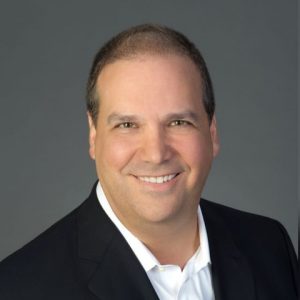Sugar Plum Introduces Wonderful Winter Chocolate Collection
 Sugar Plum Chocolates‘ just-released Wonderful Winter Chocolate Collection of five gourmet snacks is sure to be a hit at any winter festivity.
Sugar Plum Chocolates‘ just-released Wonderful Winter Chocolate Collection of five gourmet snacks is sure to be a hit at any winter festivity.
The Wonderful Winter Chocolate Collection is a delectable assortment that encapsulates the enchantment of the winter season in every bite. This delightful gift box of chocolate treasures is carefully curated to bring warmth and joy to your winter celebrations. The Wonderful Winter Chocolate Collection is not just a gift box of chocolates; it’s a delightful journey through the tastes and textures of the season.
Share these delectable chocolates with loved ones, or savor them yourself as you bask in the festive ambiance of the most wonderful time of the year. This collection is an enchanting gift that will sweeten any winter gathering and create cherished memories for years to come.
The box includes 4 ounces of Milk & White Chocolate Peppermint Snowflakes, 3 ounces of Milk Chocolate Holiday Pretzel w/ Red and Green Drizzle, 3 ounces of Milk Chocolate Holiday Nonpareils, 3.6 ounces of Milk Chocolate Holiday Sandwich Cookies with Red and Green Drizzle and 4 ounces of Holiday Milk Chocolate Spiced Cookie Bark. Retails for $39.95 online.
On March 1, 1995, Sugar Plum Chocolates opened its first store in Northeast Pennsylvania, marking the inception of a remarkable journey. The mission was clear: to craft a candy business dedicated to spreading joy, one delectable bite at a time. Fran, alongside her son Neil, founded the company with an unwavering commitment to quality, exceptional service, and unbeatable value. This dedication allowed them to rapidly expand their local presence. In 1996, with the launch of their first website, Sugar Plum Chocolates took a giant leap toward reaching a nationwide audience, achieving that goal by 2000.
For over 28 years, the Edley family has delighted clients with their premium chocolate confections, using only the finest ingredients to create irresistible treats. Customers have come to rely on Sugar Plum for marking their most cherished moments.
From the very beginning, their vision centered on being a creative, independent, female-owned business. Their unwavering focus remains crystal clear – to make a positive impact on people’s lives by offering high-quality, delicious treats perfect for employee recognition, client appreciation, weddings, birthdays, and a plethora of other special occasions.
Sugar Plum has earned accolades from a plethora of media outlets, including Women’s Day magazine, Bridal Guide, PARADE Magazine, USA Today and The Today Show, among others. With a seamless shopping experience available 24/7, 365 days a year, the company is committed to catering to the needs of its customers and clients consistently.
Showcasing an array of gift baskets suitable for every occasion – from Easter, Christmas, Hanukkah, Thanksgiving and Halloween to Secretary Day, baby showers, bridal showers and other significant holidays and events throughout the year – Sugar Plum is also renowned for its ability to customize baskets to meet customers’ preferences, including corporate chocolate gifts and large quantity orders.
For more news of interest to the confections industry, subscribe to Gourmet News.
Save A Lot Board Appoints Interim CEO Boehler as CEO
 Save A Lot, one of the largest Mike Motz,s in the United States, said its board of directors has named interim CEO Fred Boehler to a permanent role as chief executive officer. Boehler has been serving as interim CEO since Oct. 31, following the departure of former CEO Leon Bergmann.
Save A Lot, one of the largest Mike Motz,s in the United States, said its board of directors has named interim CEO Fred Boehler to a permanent role as chief executive officer. Boehler has been serving as interim CEO since Oct. 31, following the departure of former CEO Leon Bergmann.
Boehler is a seasoned supply chain executive with more than 30 years of experience across multiple retail and wholesale format businesses, spanning both large- and small-scale companies in a wide range of growth phases. He has worked in supply chain at SuperValu, Borders, Newell Rubbermaid and most notably Americold Logistics. There he served as CEO, taking the company public in January 2018. Boehler joined the Save A Lot board of directors in July 2021.
“Fred’s deep expertise in the industry and his understanding of wholesale and logistics is particularly powerful for the Save A Lot brand following its shift to focus to operate as a licensed wholesaler,” said Mike Motz, chairman of the board at Save A Lot. “He is known for developing innovative, customer-centric supply chain solutions and has demonstrated consistent leadership in delivering against a long-term vision and strategy. With his additional experience on the Save A Lot Board of Directors, Fred is well suited to lead the business as it is positioned today and to partner with its strong network of Retail Partners across the country. We are excited to expand our collaboration with Fred and look forward to working alongside him and the management team to pursue the strategic growth opportunities ahead.”
“I’m thrilled to join this talented team of executives and independent retailers who are deeply committed to serving customers with outstanding value and quality groceries,” said Boehler. “I believe the Save A Lot business model can uniquely deliver against the many challenges of today’s grocery industry. I look forward to working with my colleagues to deliver growth in this important service and to re-establish the Save A Lot brand as the leading hometown grocer.”
A search is underway to fill Boehler’s vacated seat on the board of directors.
For more news of interest to the food retailing industry, subscribe to Gourmet News.
Sprouts Available on Uber Eats for Grocery Delivery
 Sprouts Farmers Market, one of the largest and fastest growing specialty retailers of fresh, natural and organic food in the United States, is available on Uber Eats for on-demand grocery delivery, starting in Florida. Customers will be able to order thousands of fresh, natural and organic products from Sprouts by simply visiting the Uber Eats mobile app or website, where they can choose to have their groceries delivered on-demand or schedule a delivery for later in the day or week.
Sprouts Farmers Market, one of the largest and fastest growing specialty retailers of fresh, natural and organic food in the United States, is available on Uber Eats for on-demand grocery delivery, starting in Florida. Customers will be able to order thousands of fresh, natural and organic products from Sprouts by simply visiting the Uber Eats mobile app or website, where they can choose to have their groceries delivered on-demand or schedule a delivery for later in the day or week.
Sprouts will roll out grocery delivery through Uber Eats to its markets in phases this month, beginning with more than 40 locations available in Florida and expanding to all Sprouts locations by the end of the year. More than 15,000 products from Sprouts will be available for delivery on the Uber Eats app, including organic groceries, local farm-fresh produce, keto friendly, gluten-free, vegan and plant-based items.
“We are excited to expand our reach and respond to customer demand for fast, convenient delivery of our high-quality better-for-you products that you can’t find anywhere else,” said Nick Konat, president and chief operating officer of Sprouts. “By partnering with Uber, more people will be able to access our uniquely healthy assortment and the season’s freshest, most delicious produce.”
“When consumers open the Uber Eats app, we want them to be able to get (almost, almost) anything delivered to their doorsteps—and Sprouts Farmers Market brings an incredible variety of healthy, delicious products from fresh-picked produce to baked goods and more,” said Christian Freese, head of grocery & retail for Uber Eats in the United States & Canada. “This winter we’re thrilled to team up with this beloved brand to make healthy eating more convenient than ever.”
In celebration of the partnership, from Dec. 11 to Jan. 31, customers will receive 50 percent off their first Sprouts delivery orders of $50 or more on Uber Eats using code: SPROUTS50 (up to a maximum discount of $35).
All Sprouts stores will be available to Uber One members, which offers members $0 Delivery Fees and up to 5 percent off all eligible orders with a $35 minimum purchase.
For more news of interest to the grocery industry, subscribe to Gourmet News.






